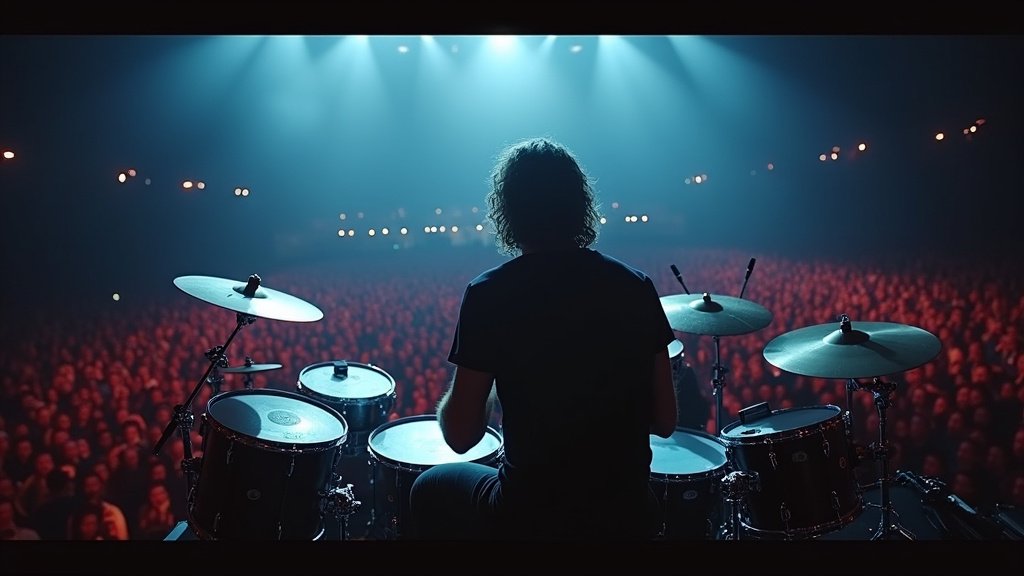In the ever-expanding landscape of historical dramas, FX’s Shōgun (2024) emerges as a grand contender, blending rich cultural depth with ruthless political intrigue. Based on James Clavell’s 1975 novel, this series masterfully reinterprets the original work, offering viewers a darker, more visceral take than its 1980 predecessor. With only 10 episodes, Shōgun catapults viewers into the tumultuous world of 17th-century Japan, where ambition, honor, and treachery govern every move.
A Historical Drama That Strikes with Precision
The series opens with Pilot Major John Blackthorne (Cosmo Jarvis) barely surviving after his ship is marooned on the coast of Ajiro, Japan, in 1600. This Protestant pilot, sent by the Church of England to wrest trade dominance from the Catholic Portuguese, is soon entangled in the local power struggles of feudal Japan. Blackthorne’s arrival happens just as Lord Yoshii Toranaga (Hiroyuki Sanada), ruler of the Kantō region, is in the fight of his life against the Council of Regents, who believe he has amassed too much power.
Unlike its predecessor, Shōgun (2024) does not rest on Orientalist tropes. It allows Japanese characters to flourish as full-bodied individuals, presenting a more balanced narrative that delves deep into the country’s political tensions. As Blackthorne is thrust into this alien world, his initial conviction that the Japanese are “godless savages” is quickly dismantled. Through the lens of Toranaga and his trusted samurai and translator, Mariko (Anna Sawai), the show carefully explores the complex interplay between Western and Japanese philosophies.
Exceptional Characters and Performances
Much of the appeal of Shōgun lies in its deftly written characters. Unlike many historical dramas that often romanticize or flatten secondary characters, this series ensures that even minor players leave an impact. Toranaga’s loyal commander, Kashigi Yabushige (Tadanobu Asano), stands out as a brash but calculating samurai lord who provides both comic relief and dramatic intensity. His constant scheming injects much-needed levity into a show that, at times, feels dense with political backstabbing. Meanwhile, Mariko embodies the paradox of duty and personal desire, a trait which makes her interactions with Blackthorne simmer with tension. Their relationship grows, driven not only by romantic attraction but also by their conflicting views on freedom and honor.
What sets Shōgun apart from other recent TV dramas, often accused of favoring spectacle over substance, is its dedication to character-driven storytelling. The dialogue is layered with subtext, and the interactions between characters are as thrilling as the epic battle scenes that periodically interrupt the quiet tension. The show does not shy away from violence, but its brutality feels earned, grounded in the harsh realities of the time.
Production Quality: A Visual Feast with Some Caveats
Visually, Shōgun shines with high production values. From intricate set designs to meticulously crafted costumes, the attention to historical detail is impeccable. The series’ cinematographers have opted for moodier, high-contrast lighting, which adds to the intensity of the series’ dark themes. However, not all is perfect. Some of the night scenes, reminiscent of the infamous too-dark battle sequences in Game of Thrones, may leave viewers squinting at their screens, desperately trying to make out what’s happening.
That said, the sheer scale of the production cannot be overstated. Whether it’s a forest ambush, a duel to the death, or a strategic war meeting, the action sequences are breathtaking. With battles at sea and sword fights on land, Shōgun creates a palpable sense of danger, immersing viewers in a world where survival often depends on a single, well-placed strike.
Comparing Shōgun to Game of Thrones and Other Historical Epics
Inevitably, comparisons have been made between Shōgun and HBO’s Game of Thrones. Both series delve into the intricate web of political intrigue, ambition, and betrayal. But while Shōgun has its fair share of gore and complex characters, it avoids some of the more fantastical elements of Thrones. There are no dragons or ice zombies here, just flesh-and-blood characters navigating the perilous waters of a fractured society. The similarities lie in their tone and structure—both shows feature sprawling ensemble casts, complex interpersonal dynamics, and an unrelenting tension that keeps viewers on the edge of their seats. However, to equate Shōgun with Thrones is to miss the unique qualities that make it such a compelling watch.
Unlike Thrones, which often leaned into shock value, Shōgun revels in subtlety. Political alliances shift in hushed conversations behind closed doors, and betrayals simmer beneath the surface before exploding into the light. This is a slow-burn drama, and its methodical pacing works in its favor. The show’s writing, headed by Justin Marks and Rachel Kondo, never lets the grandeur of the plot eclipse the humanity at its core.
Themes of Prejudice, Loyalty, and Honor
At its heart, Shōgun grapples with themes of loyalty, prejudice, and honor. Blackthorne’s struggle to adapt to Japanese customs reflects the universal conflict of an outsider trying to navigate an unfamiliar culture. His initial repulsion toward the “barbaric” practices of the Japanese—whether it’s the ritualistic suicide of a samurai or their strict codes of honor—slowly gives way to admiration and a deeper understanding of the society he has stumbled into.
Meanwhile, Toranaga’s political maneuverings demonstrate the lengths to which one will go to survive in a world that demands both cunning and cruelty. His interactions with Blackthorne are particularly rich, revealing a man who is both fascinated by Western ideals and wary of the disruption they might bring.
Mariko’s arc, perhaps the most tragic, shows the quiet strength of a woman bound by duty but yearning for personal freedom. She embodies the theme of noble suffering, holding firm to her values even when faced with betrayal and violence. Her complex relationship with Blackthorne—one marked by respect, love, and ideological conflict—adds a layer of emotional depth to the series.
The Downside: Limited Time for an Expansive Story
While Shōgun delivers a richly textured narrative, it suffers somewhat from its limited runtime. With only 10 episodes to unravel such a dense story, some characters and subplots feel slightly underdeveloped. A longer series could have given more space to explore the political intricacies and the fates of secondary characters, many of whom are just as intriguing as the leads.
Nevertheless, the show manages to tell a complete story within its constraints, leaving viewers satisfied but yearning for more. The decision to focus on a single season might feel like a missed opportunity for fans of sprawling epics, but it also ensures that the series doesn’t overstay its welcome.
Final Verdict: Shōgun is a Must-Watch for History Lovers and Drama Enthusiasts
FX’s Shōgun (2024) is a masterclass in historical drama, blending breathtaking visuals with complex characters and sharp political commentary. While it has its flaws—most notably the sometimes overly dark cinematography and the occasional rushed subplot—these are minor quibbles in an otherwise outstanding production.
Fans of historical epics, especially those who enjoy a slow-burn narrative that favors character development over constant action, will find much to admire in this series. Its attention to cultural detail, combined with excellent performances from its ensemble cast, makes Shōgun a standout in the current TV landscape.
Whether you’re a longtime fan of Clavell’s novel or a newcomer to the world of feudal Japan, Shōgun offers a gripping, emotionally resonant experience that lingers long after the final episode.




